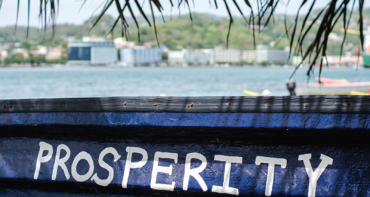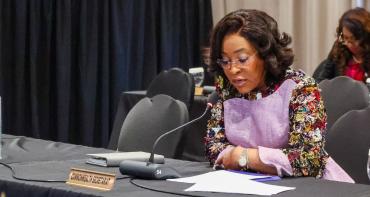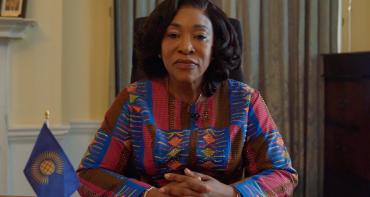The small states of the Commonwealth could be losing out on $4.5 billion of overseas development assistance, a preliminary Commonwealth Secretariat study has shown.

The small states of the Commonwealth could be losing out on $4.5 billion of overseas development assistance, a preliminary Commonwealth Secretariat study has shown.
In response, Commonwealth Secretary-General Patricia Scotland will call for strategies to help small and vulnerable states improve their ability to effectively access and use development assistance.
The Secretary-General is due to speak in Washington at a conference of the International Monetary Fund and World Bank called Building Resilience to Disasters and Climate Change in the Caribbean on 26 November. She will lead a session on incentives and financing to build resilience.
Secretary-General Scotland said, “The Caribbean has been through testing and distressing times in recent years, with storms and hurricanes of unprecedented intensity causing widespread devastation. We commend the international community for rallying to provide support, and the affected countries for their practical resolve to build back better and stronger. But we have a lot of work to do to address inherent and systemic barriers to building resilience, such as debt, limited private financing and capacity constraints.”
She continued, “One key area we need urgently to improve is coordination among organisations and donors so countries are able to access and utilise financial assistance more swiftly through processes that are more streamlined. It is of great concern that a preliminary Commonwealth study shows that small and vulnerable states failed to utilise $4.5 billion of development assistance made available between 2010 and 2016.”
At the Washington conference the Commonwealth will present its plans for working alongside member countries to build resilience to disasters and climate change. These plans include:
- The Commonwealth Finance Access Hub, which is helping developing states make successful applications for projects related to climate change. Member countries have already received £4.1 million of climate finance and £140 million more is in the pipeline.
- The new Disaster Risk Financing Portal, which will give countries open, 24-hour access to key information on financing facilities so they are better resourced to manage the impact of disasters.
- A proposed Universal Vulnerability Index to build global consensus on the definition and measurement of the factors that combine to render countries vulnerable to environmental and financial challenges and which could be used as an agreed metric in deciding eligibility for development financing.
Travis Mitchell, the Commonwealth’s Head of Economic Policy and Small States, said the issues of development finance for resilience building and disaster risk were upmost in the minds of Commonwealth finance ministers during their annual meeting in Bali last month.
He said, “We have a clear mandate to come up with innovative and effective strategies to address this issue. So in January we are going to hold the first ever Annual Research Conference on Small States in Malta under the theme “Building Resilience Through Disaster Risk Reduction”. This will bring together experts and academics to explore new and emerging developments in disaster risk reduction.”
He added, “Their findings will feed into our Global Biennial Conference on Small States in Samoa in March next year, which will also focus on building resilience through disaster risk reduction. This meeting will put small states in direct contact with the latest disaster risk reduction innovations and finance products through presentations, networking and discussions at knowledge exchange booths.”



